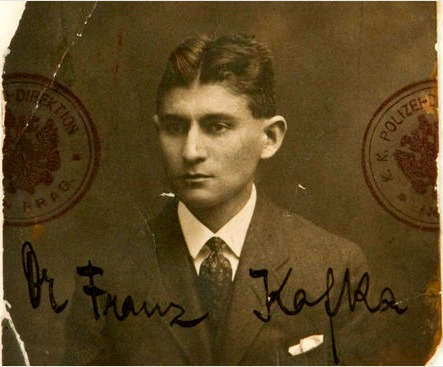Franz Kafka German Literature | Kafka’s Influence on Modern Literature
Discover Franz Kafka’s contribution to German literature and his lasting influence on modern literature. Explore Kafka’s timeless works and learn German with Fluent German Academy Chennai.
Prakaz
9/17/20253 min read


Introduction
Few writers have left as profound and haunting a mark on literature as Franz Kafka. A German-speaking Bohemian writer born in Prague in 1883, Kafka has become one of the most influential figures in Franz Kafka German literature and modern world literature. His works—marked by alienation, absurdity, and existential dread—have shaped not only German literary traditions but also cultural, psychological, and philosophical thought across the globe.
Early Life and Background
Kafka was born into a middle-class Jewish family in Prague, then part of the Austro-Hungarian Empire. Though his native city was predominantly Czech-speaking, Kafka belonged to the German-speaking minority, and his education and literary career unfolded in the German language. His life was marked by a complex relationship with his domineering father, fragile health, and inner conflicts over religion, identity, and vocation.
Despite working as a clerk in an insurance office, Kafka devoted his nights to writing. He never married, published only a handful of works in his lifetime, and even asked his close friend Max Brod to burn his unpublished manuscripts after his death. Thankfully, Brod ignored his request, preserving masterpieces that later defined Kafka’s legacy.
Kafka’s Literary Style and Themes
Kafka’s writing stands out for its:
Use of the Absurd: Characters are placed in surreal, nightmarish situations beyond their control.
Themes of Alienation: Individuals struggle against impersonal bureaucracies, oppressive systems, or unexplained forces.
Existential Exploration: His works echo philosophical questions about freedom, guilt, and the search for meaning.
Clarity of Language, Depth of Symbolism: His German prose was precise yet layered with symbolism, allowing endless interpretations.
This unique style gave rise to the term “Kafkaesque”, which now describes situations that are oppressively complex, bizarre, or illogically bureaucratic.
Major Works and Contributions
The Metamorphosis (Die Verwandlung, 1915)
Kafka’s most famous novella, where Gregor Samsa wakes up transformed into a giant insect. The story explores identity, family responsibility, and dehumanization.
The Trial (Der Prozess, 1925)
Published posthumously, it follows Josef K., a man inexplicably arrested by an incomprehensible legal system. A chilling commentary on bureaucracy, guilt, and powerlessness.
The Castle (Das Schloss, 1926)
Another posthumous novel, portraying a man’s futile attempt to gain access to unreachable authority. It highlights the struggle between the individual and faceless systems.
Short Stories and Diaries
Works like In the Penal Colony and his diaries reveal Kafka’s inner anxieties, philosophical depth, and critical observations of modern life.
Franz Kafka and German Literature
Kafka revolutionized German literature by breaking away from realism and introducing surreal, dreamlike narratives that captured the anxieties of the modern era. He gave voice to themes of alienation, uncertainty, and the dehumanizing effects of bureaucracy—ideas that resonated deeply in 20th-century Europe.
His precise use of the German language and symbolic richness influenced major German authors like Thomas Mann, Hermann Hesse, and later Günter Grass. Through his innovations, Franz Kafka German literature became a foundation for modernist and existentialist traditions.
Kafka’s Influence on Modern Literature
Kafka’s works transcended cultural and linguistic boundaries. His ideas of absurdity, alienation, and existential struggle have shaped global storytelling. Kafka’s influence on modern literature is evident in:
Philosophy: Existential thinkers like Camus and Sartre found inspiration in Kafka’s themes.
Psychology: His works resonate with studies on anxiety, guilt, and trauma.
Politics & Society: His portrayal of oppressive systems remains a mirror for authoritarianism and red tape.
Popular Culture: The word Kafkaesque is widely used to describe bizarre bureaucratic ordeals in media, film, and journalism.
Why Kafka Still Matters Today
Even today, Kafka’s writing feels urgent. In a world of endless bureaucracy, global crises, and technological surveillance, his insights into alienation and absurdity remain timeless. His works remind us that literature can confront life’s deepest anxieties and reflect the struggles of being human in complex systems.
Conclusion
Franz Kafka may have lived a short and troubled life, but his contribution to Franz Kafka German literature and world culture is immeasurable. His unique narrative style, symbolic depth, and existential themes continue to shape writers, thinkers, and readers across generations.
Kafka’s world—where the ordinary collides with the absurd—remains a powerful reflection of modern life. His influence will continue to define how we interpret literature, philosophy, and the human condition.
📢 Learn German and Explore Kafka’s Legacy!
If Kafka’s works inspire you to dive deeper into the richness of German literature, why not start your journey today? At Fluent German Academy Chennai, we help you master the German language while also exploring its vast cultural and literary heritage.
👉 Join Fluent German Academy Chennai and take your first step toward understanding classics like Kafka in their original German form.
Fluent German Academy
Get in touch
© 2025. All rights reserved.
Designed by VJ
12/26, 3rd floor, Saligramam, KK Salai, Kaveri Rangan Nagar, Chennai - 600093.